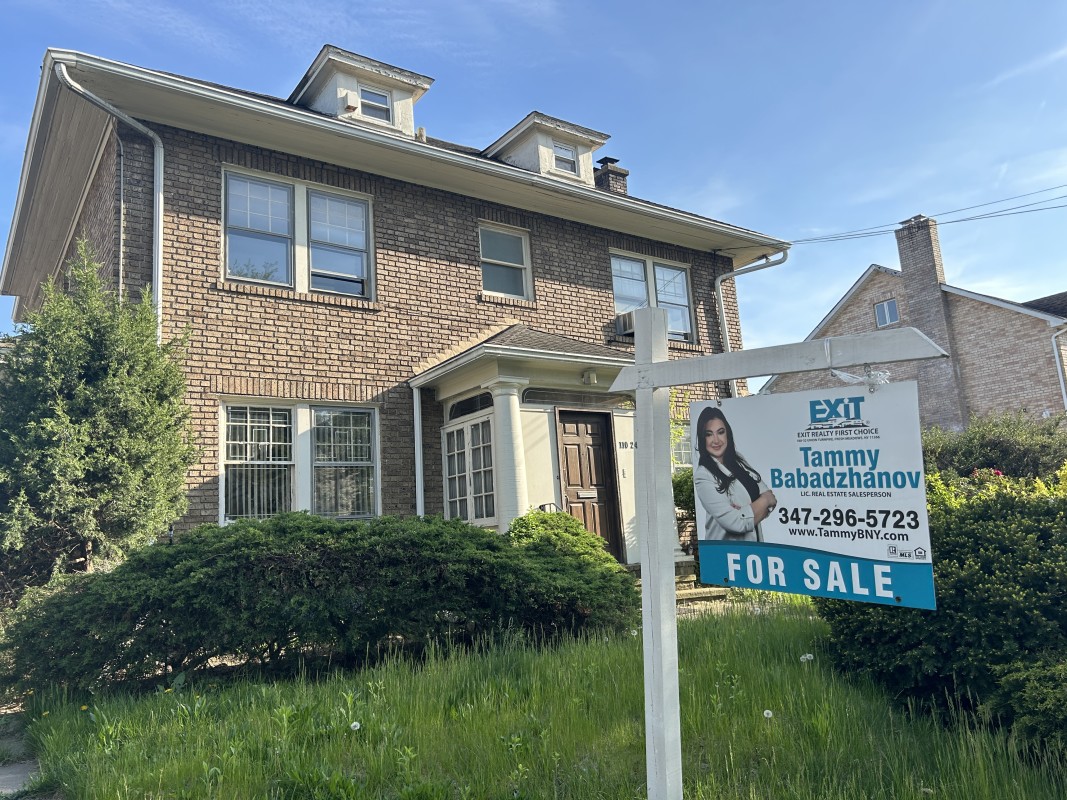
The housing market has been particularly challenging for first-time homeowners despite the average buyer age and salary increasing. New buyers are battling record-high down payment expectations, competition from cash buyers, high mortgage rates, and low inventory.
These difficulties delay younger generations from reaching the life milestone of buying a home, which has typically served as a gateway to building wealth. According to the National Association of Realtors, the average homebuyer is now 56, an indicator of how older generations are dominating the housing market at the expense of younger buyers.
The lack of affordability drives younger demographics out of the market, forcing many to rent for longer despite skyrocketing rents.
💸💰 Don't miss the move: Subscribe to TheStreet's free daily newsletter 💰💸
For this reason, mortgage rates and the state of the housing market are a top concern for young voters, prompting both Kamala Harris and Donald Trump to propose their own housing initiatives.
And as the president-elect, Trump’s housing plan and economic policy will impact inflation, determining whether interest rate cuts will continue through 2025.
Lowering mortgage rates is the most reliable catalyst to prompt older Americans to put their homes on the market, increasing inventory and driving down competition.

Shutterstock
2024 housing market trends show an increase in older buyers
First-time home buyers combined less than a quarter of the housing market this year, down from 32% in 2023. The average age of a first-time home buyer rose from 35 to 38 over the same period.
The average homebuyer age also rose to 56, almost perfectly in line with the average seller age of 63. These startling trends indicate that the current housing market is unfriendly to young buyers, and Baby Boomers and Gen X are dominating both sides of the market.
More on homebuying:
- Is there a housing bubble on the horizon?
- Cash is king: High mortgage rates are changing home-buying trends
- Dave Ramsey explains how your mortgage is key to early retirement
26% of all purchases were all-cash deals, which shows that the preference for cash favors older and more financially stable generations. Many prospective Millennial and Gen Z buyers can’t compete with these conditions, and some are starting to buy homes with their family members.
Multi-generational home purchases increased to 17% of all housing sales, the highest amount on record. Affordability and caregiving are the top drivers for families purchasing homes together.
Although mortgage rates have dropped from their recent high in October 2023, young voters are concerned about the state of the housing market and whether they will ever be able to afford a home of their own.

Lindsey Nicholson/UCG/Universal Images Group via Getty Images
Presidential candidates’ housing policy may sway young voters
The Harvard University Joint Center for Housing Studies notes a growing home price-to-income ratio as a concerning indicator of housing affordability. In 2022, the median home was 5.6 times higher than the median income, far higher than any other point dating back to the 1970s.
While this ratio will likely plateau, inventory shortages and rising demand will keep housing prices high. For this reason, young voters are troubled by how the housing market will evolve over the next decade.
A February 2024 Redfin survey found that 91% of Gen Z cites housing affordability as their top voting concern, outranking the economy, healthcare, geopolitical issues, and the Second Amendment. Both Kamala Harris and Donald Trump have made a point to highlight their plans for the housing market — both of which are shaped by each candidate’s economic policy.
Related: Dave Ramsey explains how your mortgage is key to early retirement
The Harris campaign has proposed a two-pronged approach: offering subsidies to consumers to help alleviate current housing prices and using tax credits to incentivize the construction of 3 million new housing units over the next four years. While this may not solve the housing issue and supply gap, economists note that the plan would bolster the market and create a path for long-term success.
Harris’s $25,000 down-payment assistance for first-time home buyers has received mixed reviews. Some experts agree it could help remove barriers for young buyers, but others suggest it could drive up prices overall, negating the intended purpose.
Donald Trump has proposed cutting construction regulations to stimulate the industry and increase housing construction. While this aligns with regulatory rollbacks favored by businesses, regulators and safety inspectors highlight the safety concerns and quality assurance problems this approach would create.
The Trump campaign has also suggested that cracking down on illegal immigration will resolve the housing supply issue. However, economists suggest this could have notable implications for the labor market and the broader economy.
Next to understand is the extent to which housing policy becomes a priority for the Trump administration next year.
Related: Veteran fund manager sees world of pain coming for stocks







